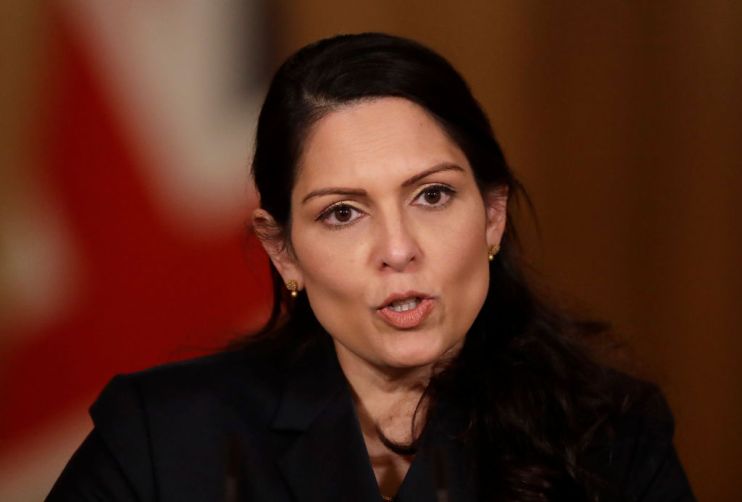Priti Patel warns Facebook’s encryption plans could harm child safety

Facebook’s plans to roll out end-to-end encryption across its messaging platforms could mark a setback for efforts to protect children from online abuse, the home secretary is set to warn.
The social media giant has unveiled plans to extend encryption — which means only the sender and recipient can view messages —— to Messenger and Instagram. It is already used on Whatsapp.
Speaking at an event today, Priti Patel will urge Facebook not to press ahead with the plans until it can guarantee that children’s safety will not be compromised.
“We cannot allow a situation where law enforcement’s ability to tackle abhorrent criminal acts and protect victims is severely hampered,” she is expected to say.
The National Society for the Prevention of Cruelty to Children (NSPCC), which is organising the event, described private messaging as the “front line of child sexual abuse”.
Major tech platforms including Facebook currently use a range of technology to identify child abuse images and detect grooming and sexual abuse in private messages.
But campaigners have warned that an extension of encryption would render these tools useless.
“Sadly, at a time when we need to be taking more action, Facebook are pursuing end-to-end encryption plans that place the good work and progress achieved so far in jeopardy,” Patel will say.
“The offending will continue, the images of children being abused will proliferate — but the company intends to blind itself to this problem through end-to-end encryption which prevents all access to messaging content.”
A Facebook spokesperson said: “Child exploitation has no place on our platforms and Facebook will continue to lead the industry in developing new ways to prevent, detect and respond to abuse.
“End-to-end encryption is already the leading security technology used by many services to keep people safe from hackers and criminals. Its full rollout on our messaging services is a long term project and we are building strong safety measures into our plans.”
A ‘balanced’ approach
The home secretary will attend a meeting with child protection, civil society and law enforcement experts from the UK, US, Canada, Ireland and Australia.
The NSPCC will unveil new research about the impact of encryption for child protection and call for tech firms to double down their approach through safer design features and investment in technology.
It will also call for a “reset” of the debate around the issue, arguing that it had become a zero-sum game skewed in favour of adult privacy over the safety and privacy rights of children.
Instead, it said a more balanced approach was possible that protected the safety of children while maximising the privacy of all users.
“Private messaging is the front line of child sexual abuse but the current debate around end-to-end encryption risks leaving children unprotected where there is most harm,” said Sir Peter Wanless, NSPCC chief executive.
“The public want an end to rhetoric that heats up the issue but shines little light on a solution, so it’s in firms’ interests to find a fix that allows them to continue to use tech to disrupt abuse in an end-to-end encrypted world.”
He added: “We need a coordinated response across society, but ultimately government must be the guardrail that protects child users if tech companies choose to put them at risk with dangerous design choices.”